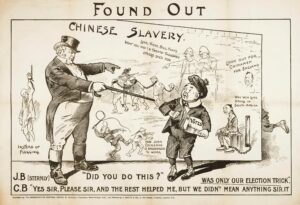The Ensuring Women’s Right to Reproductive Freedom Act – HR 4099 IH
Introduced in the House of Representatives on June 24, 2025.
What is this bill about?
This bill aims to prohibit interference with interstate abortion services and protect individuals’ rights to reproductive freedom.
The Bill: Ensuring Women’s Right to Reproductive Freedom Act
HR 4099 IH is a bill introduced in the 119th Congress, 1st session, which may be cited as “Ensuring Women’s Right to Reproductive Freedom Act.”
- Be it enacted by the Senate and House of Representatives of the United States of America in Congress assembled.
- This Act may be cited as the ‘‘Ensuring Women’s Right to Reproductive Freedom Act’’.
Section 1: Short Title
This Act may be cited as the “Ensuring Women’s Right to Reproductive Freedom Act”.
This section is also accessible at:
Section 2: Interference with Interstate Abortion Services Prohibited
No person acting under color of State law may prevent, restrict, or impede, or retaliate against, a health care provider’s ability to provide an abortion service that is lawful in the State in which the service is to be provided to a patient who does not reside in that State.
- (1) A health care provider’s ability to provide, initiate, or otherwise enable an abortion service that is lawful in the State in which the service is to be provided to a patient who does not reside in that State;
- (2) Any person or entity’s ability to assist a health care provider to provide, initiate, or otherwise enable an abortion service that is lawful in the State in which the service is to be provided to a patient who does not reside in that State;
- (3) Any person’s ability to travel across a State line for the purpose of obtaining an abortion service that is lawful in the State in which the service is to be provided;
- (4) Any person’s or entity’s ability to assist another person traveling across a State line for the purpose of obtaining an abortion service that is lawful in the State in which the service is to be provided;
- (5) The movement in interstate commerce, in accordance with Federal law or regulation, of any drug approved or licensed by the Food and Drug Administration for the termination of a pregnancy.
The Attorney General may bring a civil action in the appropriate United States district court against any person who violates subsection (a) for declaratory and injunctive relief.
Any person who is harmed by a violation of subsection (a) may bring a civil action in the appropriate United States district court against the person who violated such subsection for declaratory and injunctive relief, and for such compensatory damages as the court determines appropriate.
Section 3: Definitions
The term “abortion service” means an abortion, including the use of any drug approved or licensed by the Food and Drug Administration for the termination of a pregnancy; and any health care service related to or provided in conjunction with an abortion.
- (1) The term ‘‘abortion service’’ means—
- (A) an abortion, including the use of any drug approved or licensed by the Food and Drug Administration for the termination of a pregnancy;
- (B) any health care service related to or provided in conjunction with an abortion;
The term “health care provider” means any entity or individual (including any physician, certified nurse-midwife, nurse practitioner, physician’s assistant, or pharmacist) that is engaged or seeks to engage in the delivery of health care services, including abortion services.
- (1) The term ‘‘health care provider’’ means any
- entity or individual (including any physician, certified nurse-midwife, nurse practitioner, physician’s assistant, or pharmacist)
- that is—
- (A) engaged or seeks to engage in the delivery of health care services, including abortion services;
The term “drug” has the meaning given such term in section 201 of the Federal Food, Drug, and Cosmetic Act (21 U.S.C. 321).
The term “State” includes the several States, the District of Columbia, the Commonwealth of Puerto Rico, the United States Virgin Islands, American Samoa, Guam, the Northern Mariana Islands, each Indian tribe, and each territory or possession of the United States.
Section 4: Severability
If any provision of this Act, or the application of such provision to any person, entity, government, or circumstance, is held to be unconstitutional, the remainder of this Act, or the application of such provision to all other persons, entities, governments, or circumstances, shall not be affected thereby.
This section is also accessible at:
Section 5: Rule of Construction
Nothing in this Act shall be construed to limit the fundamental right to travel within the United States, including the District of Columbia, Tribal lands, and the territories of the United States, nor to limit any existing enforcement authority of the Attorney General or any existing remedies available to address a violation of such right.
This section is also accessible at:




